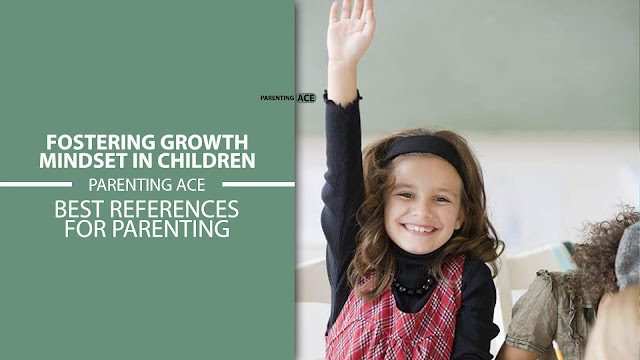Fostering a Growth Mindset in Children: Strategies for Parents
Encouraging a growth mindset in children is crucial for their long-term success and well-being. In this blog post, we delve into effective strategies that parents can employ to foster this mindset in their children. From praising efforts over outcomes to promoting resilience in the face of challenges, join us as we explore the transformative power of nurturing a growth mindset and its impact on children's development.
 |
| Fostering Growth Mindset in Children |
How Do Parents Encourage A Growth Mindset In Their Children?
In the realm of child development, fostering a growth mindset in children is paramount for their long-term success and well-being. A growth mindset, as coined by psychologist Carol Dweck, refers to the belief that abilities and intelligence can be developed through dedication, effort, and learning. Unlike a fixed mindset, which sees traits as static and unchangeable, a growth mindset empowers children to embrace challenges, persist in the face of setbacks, and ultimately reach their full potential. In this article, we explore how parents can play a pivotal role in cultivating a growth mindset in their children, offering strategies grounded in psychological principles and real-world application.
Encouraging a Growth Mindset
1. Praise the Process, Not Just the Outcome
Parents should focus on praising children's efforts, strategies, and perseverance rather than solely praising their achievements. By highlighting the process of learning and growth, parents reinforce the idea that progress is attainable through hard work and resilience.
2. Embrace Challenges as Learning Opportunities
Encourage children to view challenges as opportunities for growth rather than obstacles to be avoided. Parents can model this mindset by approaching their own challenges with a positive attitude and demonstrating perseverance in the face of difficulties.
3. Provide Specific Feedback and Support
Offer constructive feedback that is specific, actionable, and focused on improvement. Instead of generic praise or criticism, provide detailed guidance on areas where children can enhance their skills and strategies. Additionally, offer support and encouragement to help children navigate challenges and setbacks along the way.
4. Cultivate a Love for Learning
Foster a curiosity-driven approach to learning by exposing children to diverse experiences, hobbies, and interests. Encourage exploration, experimentation, and discovery, emphasizing the joy of learning rather than the pursuit of perfection.
5. Foster a Positive Mindset Toward Failure
Help children reframe their perspective on failure as a natural part of the learning process rather than a reflection of their abilities. Encourage them to see mistakes as valuable opportunities for growth, resilience, and self-improvement.
In conclusion, fostering a growth mindset in children is essential for nurturing their resilience, motivation, and lifelong learning skills. As parents, cultivating a growth mindset involves fostering a supportive environment where children feel empowered to embrace challenges, persist in the face of setbacks, and




